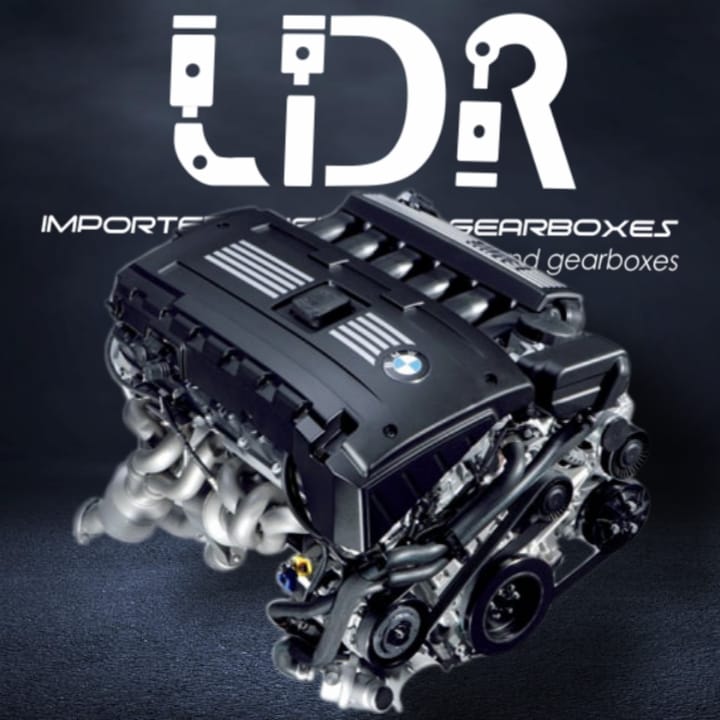BMW 318ti: A Comprehensive Guide to This Compact Powerhouse
BMW 318ti: A Comprehensive Guide to This Compact Powerhouse
Blog Article
Secret Functions to Seek When Buying an Engine for Automotive Applications
When considering the acquisition of an engine for automobile applications, a number of vital attributes warrant careful assessment to make sure ideal performance and performance. From power and efficiency capabilities to sustain adherence, toughness, and effectiveness to emissions requirements, each element plays an essential duty in establishing the engine's viability for details automobile requirements.
Power and Efficiency
When choosing an automotive engine, purchasers prioritize power and efficiency to make certain ideal driving experience and efficiency. A well-performing engine not only delivers power effectively but likewise runs efficiently across different speed varieties and driving problems.
Additionally, aspects such as engine turbocharging, displacement, and crossbreed technologies play considerable functions in improving both power and efficiency levels. Inevitably, picking an engine that supplies a powerful mix of power and efficiency ensures a rewarding and effective driving experience.
Fuel Performance
Optimizing gas effectiveness is a vital factor to consider for customers when reviewing auto engine options. The effectiveness of an engine directly affects operating expense and environmental footprint. One vital variable influencing gas efficiency is the engine's style and technology. Modern engines with functions like direct gas shot, turbocharging, and variable valve timing can significantly boost gas performance by improving burning processes and decreasing energy loss. Additionally, the general weight of the engine and car, in addition to the aerodynamics, play vital roles in determining fuel usage.

Resilience and Reliability
Accomplishing resilient efficiency and reputable operation is important for consumers reviewing the durability and reliability of automobile engines. When considering an engine for automobile applications, durability refers to the engine's ability to withstand wear, tension, and severe operating conditions over an extended duration. Integrity, on the other hand, indicates that the engine can regularly do its desired function without unanticipated malfunctions or failings.
Consumers must look for engines created with high-grade materials and precise engineering to guarantee longevity. Parts such as pistons, bearings, and crankshafts must be resilient to manage the engine's power result without early wear. Additionally, engines geared up with innovative cooling systems, effective lubrication, and durable filtration devices tend to display greater degrees of reliability.
Regular maintenance and adherence to supplier referrals are additionally essential consider preserving an engine's durability and integrity. By adhering to maintenance schedules, making use of advised liquids, and attending to any type of issues quickly, customers can maximize the life expectancy and efficiency of their automotive engines. Inevitably, prioritizing longevity and integrity in engine choice can lead to a much more satisfying possession experience with fewer unexpected disturbances.
Emissions Conformity
Making sure conformity address with discharges regulations is a vital element of reviewing vehicle engines for environmentally mindful customers. With boosting problems regarding air top quality and environmental influence, strict exhausts criteria have actually been implemented worldwide to decrease damaging pollutants released into the ambience. When buying an engine for automobile applications, it is vital to consider its exhausts conformity to decrease the carbon impact and comply with lawful demands.
Modern engines are outfitted with sophisticated discharge control modern technologies such as catalytic converters, exhaust gas recirculation (EGR) systems, and careful catalytic decrease (SCR) to minimize unsafe exhaust gases like nitrogen oxides (NOx), carbon monoxide (CARBON MONOXIDE), and check my source hydrocarbons (HC) These systems play an essential function in making sure that the engine fulfills the specified discharges standards and operates within permissible restrictions.

Cost-effectiveness
When taking into consideration auto engine purchases, reviewing cost-effectiveness is critical for customers looking for both performance and worth. It encompasses the total expenditures related to upkeep, gas consumption, and potential fixings over the engine's life-span.
One key element of cost-effectiveness is gas efficiency. Engines that are created to maximize gas economy can cause considerable cost savings in time, particularly for people who drive regularly or over long ranges. Additionally, considering the availability and cost of extra components and servicing can add to the overall cost-effectiveness of an engine. Making sure that repair and maintenance are accessible and sensible can stop unforeseen economic problems down the line.

Conclusion
To conclude, when buying an engine for auto applications, it is essential to take into consideration essential functions such as power and performance, gas efficiency, integrity and resilience, exhausts compliance, and cost-effectiveness. These variables are vital in guaranteeing that the engine meets the demands of the lorry and operates effectively in various driving conditions - bmw 318ti. Making an informed decision based on these criteria will ultimately result in a effective and reliable auto engine acquisition
From power and efficiency abilities to fuel effectiveness, adherence, and toughness to emissions criteria, each element plays a vital duty in establishing the engine's suitability for details automobile demands. Engines created to run on alternate gas such he said as electric power, crossbreed systems, or biofuels can provide improved gas economic climate and lower emissions contrasted to standard fuel or diesel engines. Consumers need to carefully think about the fuel performance ratings and technologies included into automobile engines to make educated acquiring choices that align with their priorities for cost savings and sustainability.
When taking into consideration an engine for automobile applications, durability refers to the engine's ability to endure wear, tension, and rough operating conditions over an extensive period.In final thought, when purchasing an engine for automobile applications, it is essential to think about crucial functions such as power and performance, gas reliability, effectiveness and resilience, emissions conformity, and cost-effectiveness.
Report this page